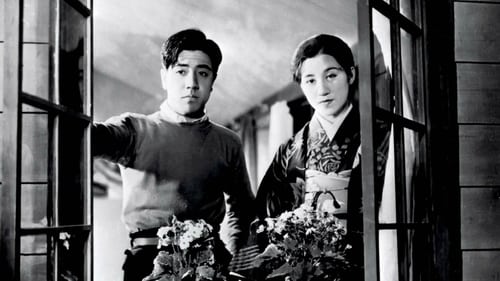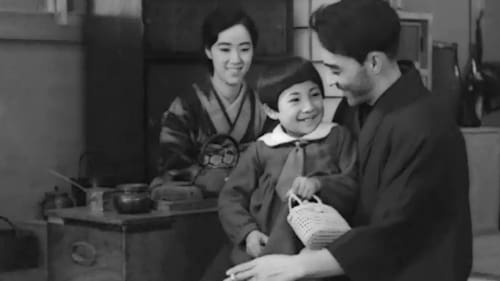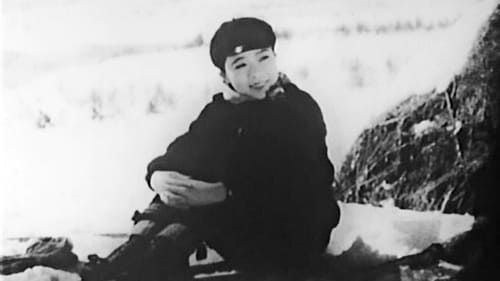Ichiro Yuki
Nascimento : 1904-07-20, Ushigome, Tokyo, Japan
Morte : 1988-09-15

Pinku from 1966.

Early pinku.

O filho adotivo de um ator renomado descobre que só é elogiado nos palcos e poupado das críticas negativas por ser o herdeiro do seu pai, e que seus colegas o menosprezam pelas costas. Somente uma empregada da familia é honesta com ele e tem coragem de lhe dizer a verdade, ainda assim incentivando-o para que continue na profissão.

dir: Teinosuke Kinugasa

Official Okubo
An onnagata (female impersonator) of a Kabuki troupe avenges his parents' deaths. Remade in 1963 as Yukinojô Henge.

Machio Harada
Mikio Naruse’s final silent film is a gloriously rich portrait of a waitress, Sugiko, whose life, despite a host of male admirers and even some intrigued movie talent scouts, ends up taking a suffocatingly domestic turn after a wealthy businessman accidentally hits her with his car.

Keiji Makino
An actress returns to Tokyo after a successful stint in Hollywood to reclaim—with the help of her gangster brother—the daughter she abandoned years before.


Kato
This 1932 adaptation is the earliest sound version of the ever-popular and much-filmed Chushingura story of the loyal 47 retainers who avenged their feudal lord after he was obliged to commit hara-kiri due to the machinations of a villainous courtier. As the first sound version of the classic narrative, the film was something of an event, and employed a stellar cast, who give a roster of memorable performances. Director Teinosuke Kinugasa was primarily a specialist in jidai-geki (period films), such as the internationally celebrated Gate of Hell (Jigokumon, 1953), and although he is now most famous as the maker of the avant-garde silent films A Page of Madness (Kurutta ichipeji, 1926) and Crossroads (Jujiro, 1928), Chushingura is in fact more typical of his output than those experimental works. The film ranked third in that year’s Kinema Junpo critics’ poll, and Joseph Anderson and Donald Richie noted that 'not only the sound but the quick cutting was admired by many critics.

Ichiro Munakata
Part two of Shimizu's major silent Seven Seas, a family drama of the intertwining fates of the rich, decadent Yagibashis and the far less prosperous Sone family.

Ichiro Munakata
The film is a lengthy work interweaving characters from different backgrounds and social strata in a narrative centered around the experiences of its heroine, Yumie Sone. Over two hours long, Seven Seas was released theatrically in two parts, with the first part entitled "Virginity Chapter" coming out in December 1931, while the second part, "Chastity Chapter," followed in March 1932. Near the beginning of the narrative, at a garden party given by the wealthy Yagibashi family in Tokyo, Yumie meets Takehiko, the Yagibashis' playboy son and the brother of Yumie's fiancé, Yuzuru. Yumie, a young middle-class woman, lives with her ailing father, a retired ministry official, an older sister, and a younger sister still a child (played by a very young Hideko Takamine). Takehiko, who has just returned from a trip to Europe, is attracted to Yumie and contrives to have her stay overnight at his family's mansion where he takes advantage of her.

The love of an older sister who worked as a geisha but decided to open a bar under the auspices of a millionaire

The Idiot, by Fyodor Dostoevsky.

Okamura
The remaining fragments of an early Ozu film. It is the simple story of two friends who live together in a poor tenement and who share about everything in life (food, hopes, work...). Everything goes well until they gallantly rescue a young (and pretty) woman injured in a road accident. Since the lady has nowhere to go, the two good-hearted friends invite her to their home. She soon becomes their housemaid and they soon begin to seek her favors. Alas, she falls for a young student she has met in the neighborhood, much to the two friends' dismay.

Fujimura
Short feature by Hiroshi Shimizu.

Bin Watanabe
Students Watanabe and Yamamoto unknowingly compete for the same girl.

Jiro Ikeda








